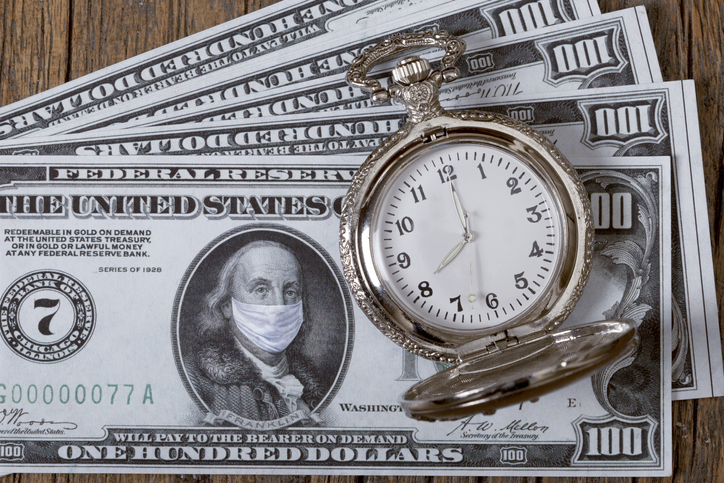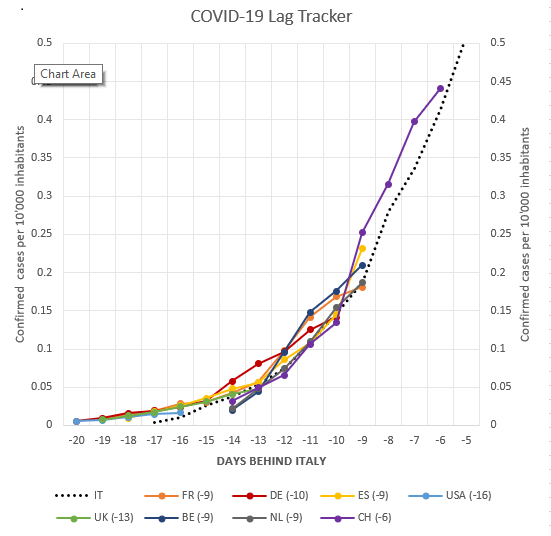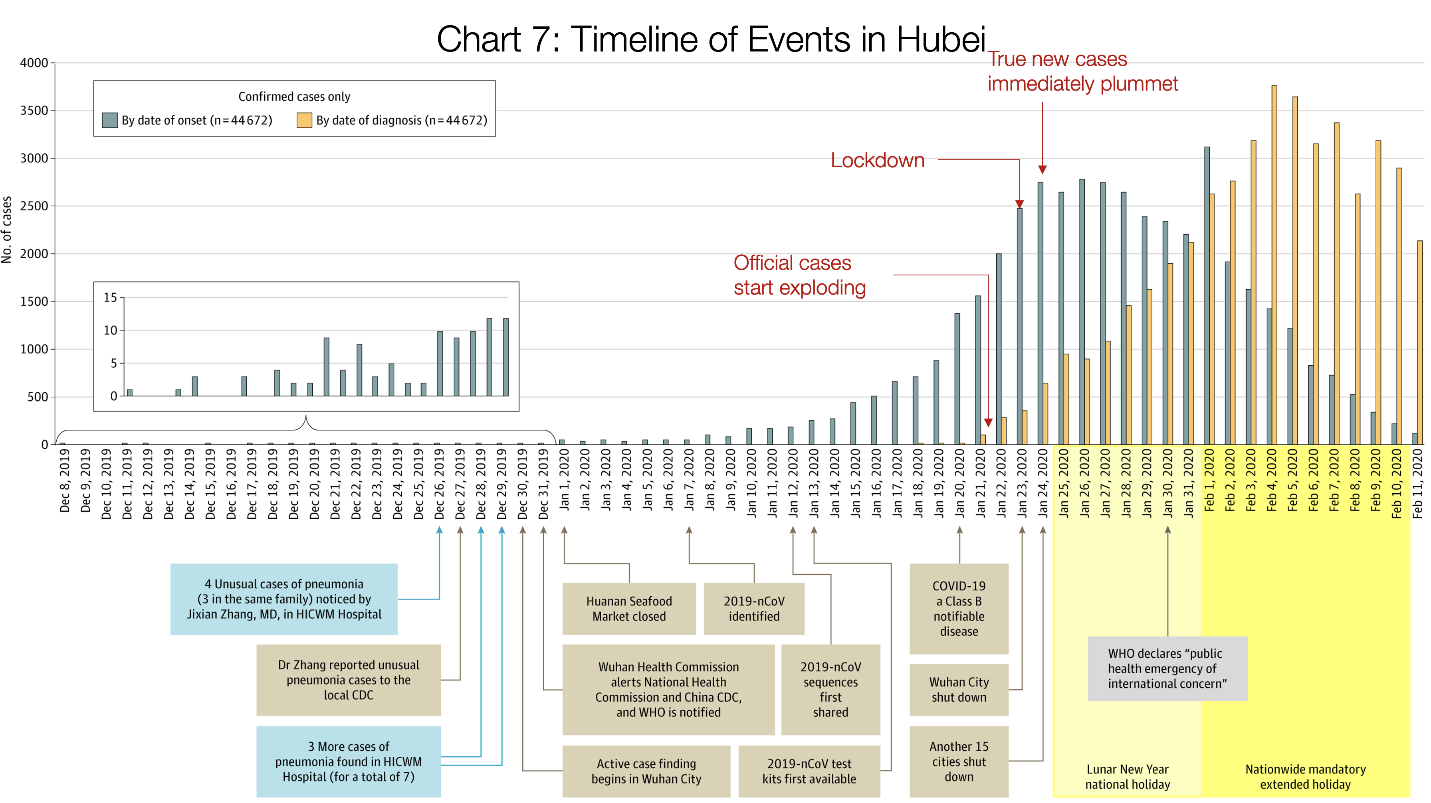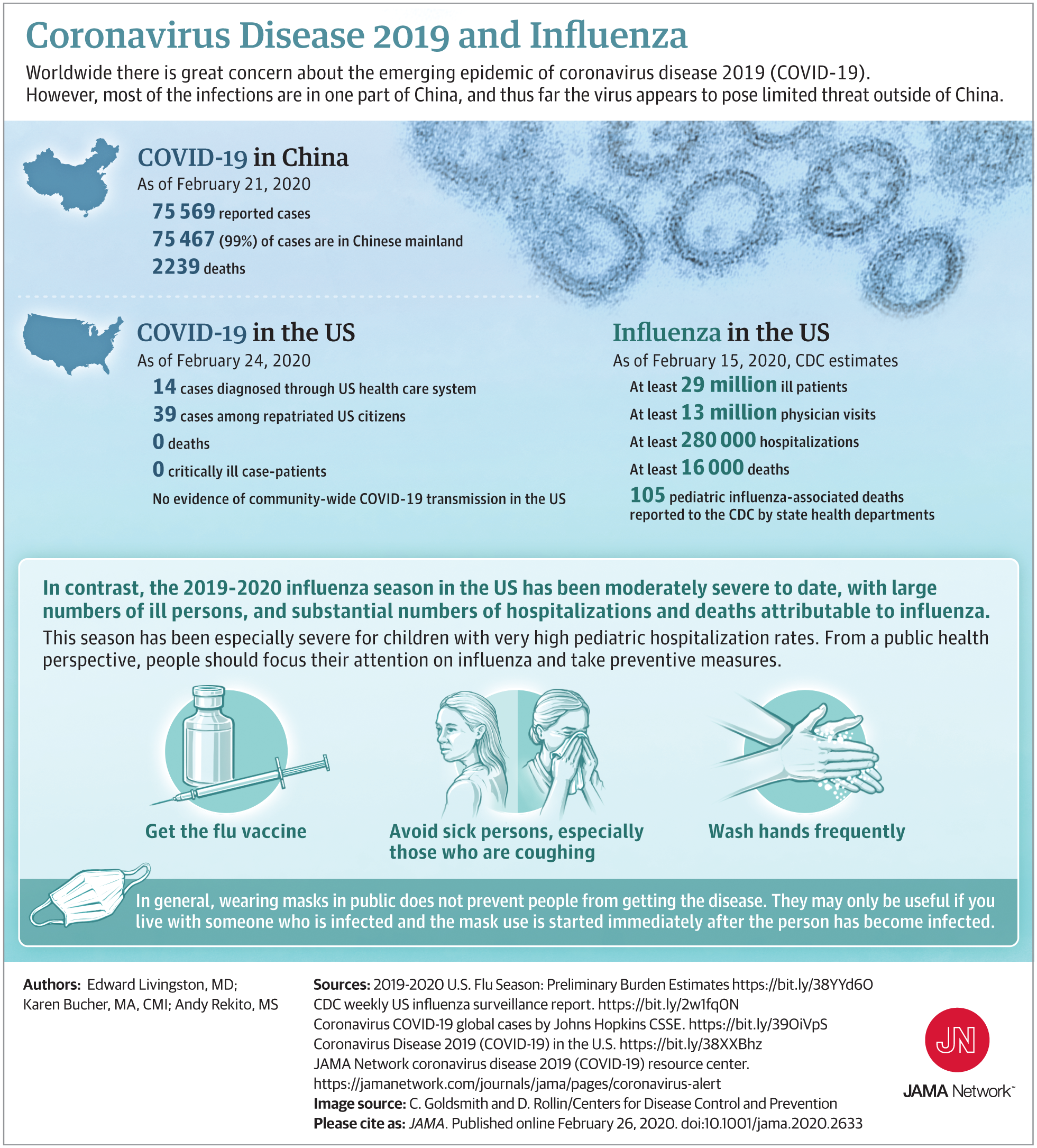In deciding on possible countermeasures, residents of Western democracies often hear only two opposite perspectives: Is the priority to minimize the loss of human lives, or to minimize the impact that the countermeasures might have on the economy? Even the simplest cost-benefit analysis suggests that the US government should be willing to spend up to $65 trillion and lock down the country to avoid extra deaths.
The coronavirus (Covid-19) pandemic is not just testing financial markets, it is testing the very functioning of Western democracies, and they are failing the test.
At this point, you do not need to be an infectious disease specialist to know what needs to be done: keep people home as much as possible, for as long as possible until the virus recedes. If we do not do so, we risk increasing substantially the percentage of people who die (from the 0.9 percent experienced outside of Wuhan to the 4.5 percent experienced in Wuhan where the hospitals were congested).
These statistics cannot be dismissed as just a Chinese specific problem. In Lombardy (one of the richest and most advanced regions in the world) hospital congestion leads the mortality rate to soar to 8.1 percent, while in the rest of Italy is “only” 3.7 percent. Why is it taking so long for Western democracies to lock down their population?
In the United States, we like to blame President Trump; and indeed, his administration bears great responsibility for minimizing the impact of the disease and for delaying testing. Yet, the problem is not limited to the United States.
Overcoming enormous business pressures to the contrary, Italy finally made the right moves. But France, Germany, Spain, and the United Kingdom seem behind the curve. As this picture (courtesy of @SMerler) shows, the progression of the virus in these countries lags behind the progression in Italy by only a few days.
So why aren’t these countries adopting the necessary measures? Why are so many experts are still dismissing the problem, like Christian Jessen, a British doctor and media star, who stated in a recent radio interview that “this is like a bad cold really, let’s be honest” and that “the Italians, any old excuse to, you know, shut down everything and stop work for a bit and have a long siesta.” This delay is sold as the rational and responsible response, but in fact it is only irrational denial.
In spite of the uncertainties associated with the novelty of the virus, China acted quite promptly.
On January 22, with only 2,500 cases in Hubei, China locked down the province and in a much stricter way than any other nation so far. It took the Italian government more than 10,000 cases to act. France, Spain, and Germany are approaching the 2,500-case mark, but seem in denial.
The delay of Western nations stands out in light of the flow of information that has come out of China in the meantime. On January 24, the prestigious medical journal The Lancet reported the statistics of the Chinese epidemic. “The severity of illness is concerning,” reads the article, “almost a third of patients developed acute respiratory distress syndrome requiring intensive care; six (out of 41) patients died; five had acute cardiac injury; and four required ventilation.”
On January 27, Taiwan introduced severe restrictions on entry from China and it was able to contain the spread of the disease, in spite of the intense flow of people between itself and mainland China. The same is true for Hong Kong and Singapore.
At most, Western nations put restrictions on direct travel from China, allowing anybody to return from China via indirect flights (both my brother and my brother-in-law flew back from China to Italy at the end of January without facing any controls). Why didn’t we pay attention to the successful responses implemented by other countries?
I would like to believe that this is only because of a legitimate fear that introducing measures restricting individual freedom would create a dangerous precedent. But this concern, which I voice in Capitalisn’t, is not widespread. The reason is different.
In deciding on possible countermeasures, we often hear only two opposite perspectives. On the one hand, there is the public health perspective, which tries to minimize the loss of human lives, ignoring the economic costs that the countermeasures might impose. On the other hand, there is the business perspective, which tries to minimize the impact that the countermeasures might have on the economy, ignoring the human costs.
Yet, there is a third perspective, which tries to mediate between the two: a cost-benefit analysis. Most politicians dislike cost-benefit analyses that involve the possible loss of human lives: how can we possibly put a price on grandma? Yet, we constantly do so, not only with grandma’s but also with our own lives.
When we agree to work in a more dangerous job for a higher salary, we are implicitly trading money for a chance to die. By observing many such tradeoffs economists have been able to estimate that the so-called value of a statistical life in the United States is $14.5 million in current dollars. This value is a measure of people’s willingness to pay for risk reduction and the marginal cost of enhancing safety.
Thus, how much are Americans willing to pay to reduce the risk that the coronavirus might have the same effect as the Spanish flu?
German Chancellor Angela Merkel stated that 60 to 70 percent of the population will be infected (between 199 and 232 million in the United States). The New York Times—citing a study of the Center for Disease Control) estimates that between 160 million and 214 million will be infected. Let’s go with the 200 million number. The World Health Organization estimates that 80 percent of infections are mild or asymptomatic, 15 percent are severe infection, requiring oxygen, and 5 percent are critical infections, requiring ventilation.
Under “normal” situations, only one out of the 5 patients in critical condition dies, hence the mortality rate (deaths over total infected) of 0.9 percent in China outside of Hubei. When hospitals are congested and access to intensive care units is rationed, 9 out of 10 of the patients in critical condition die (hence the mortality rate of 4.5 percent in Hubei). Thus, avoiding hospital congestion has the potential of saving 7.2 million lives (obtained as the difference between the 9 million deaths under the congested scenario and the 1.8 million under the “normal” scenario).
Most of the additional deaths will be older people and the US Environmental Protection Agency discounts by 37 percent of the value of a statistical life for people older than 65. Still, we are talking about roughly $9 million per lost life, which, multiplied by the 7.2 million extra deaths, yields $65 trillion.
Thus, even the simplest cost-benefit analysis suggests that the US government should be willing to spend up to $65 trillion to avoid extra deaths. Since $65 trillion is 3 times the US GDP, the United States should be willing to stop production for up to 3 years in order to eliminate the extra deaths. Note that I am not even talking about stopping the spread of the disease, but only about slowing it down enough so that critical patients can be properly treated.
Even if Merkel and the CDC were wrong by a factor of 3 on the total amount of infections and if the extra mortality rate in the congestion scenario is half of what Hubei’s data suggest, we are still at $8.2 trillion, which corresponds to 38 percent of US GDP. Thus, even very conservative estimates suggest that the United States should shut down the economy for up to 4.6 months to eliminate the extra deaths.
Then, why have no Western countries (except for Italy and Denmark) approved a lockdown of major hotspots, which amounts to much less than the shutdown of the entire economy?
The sad answer is that Western governments are completely captured by business interests. “Our first concern on coronavirus is protecting US economy,” stated US Secretary of the Treasury Steven Mnuchin only a few days ago. He was not alone in this opinion.
On March 4, the CEO of the American Hotel & Lodging Association Chip Rogers insisted, “Travel is safe, hotels are clean. There’s no place in the United States right now that is not safe to travel.” In Italy, the industrialists are still fighting the general lockdown to keep their factories operating, while workers—worried about a possible contagion—went on strike.
Vested interests have an easier time pushing their agenda because the average person is confused. There has been also a lot of disinformation, not just coming from partisan media, not just coming from president Trump, but coming from reputable sources as well.
Please read this infographic, which appeared on February 26th, 2020, in the prestigious Journal of American Medical Association as the virus was exploding in Italy. It states that the “COVID-19 epidemic, it is most severe in one area of China and appears to have limited clinical ramifications outside of that region” and it compares COVID-19 with the seasonal flu.
The business perspective has become so dominant a perspective that it is often presented in the media as the “rational” perspective. Yet, there is nothing rational about ignoring the value of lost lives: it is plain wrong, not only from a moral point of view but even from an economic point of view.
That an economist like me has to remind us this basic principle is an indication of how Western democracies are not functioning. As soon as the pandemic is over, fixing democracies should be our first order of business.









